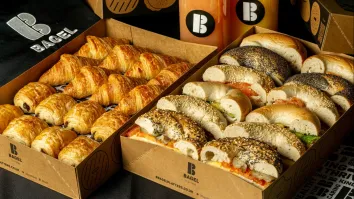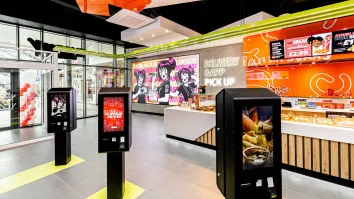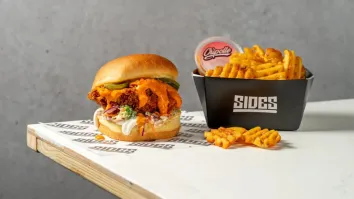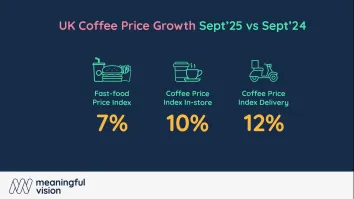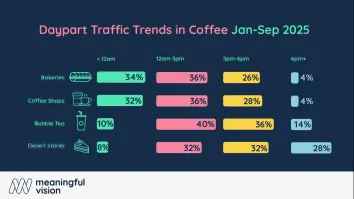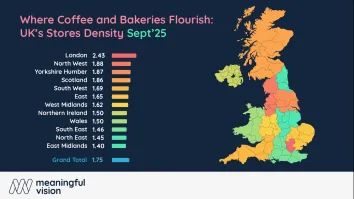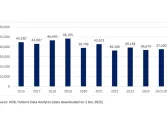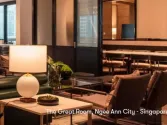
EXCLUSIVE: Abokado on the Secret to their Success
It has been a busy year for Abokado, with four stores being opened since March and plans to bring their total number of outlets to 30 by March- all without moving out of central London. We caught up with Founder Mark Lilley to find out how they do it, what is next in store for the healthy food chain and their take on the major issues affecting the industry.
QSR: What are your plans for the next 12 months?
Our financial year is to the end of March. We said we’d open 8 stores this financial year, bringing us to 30 stores in total. So far we’ve opened 4 stores, and are confident we’ll reach our target. Beyond that I’d expect we’d open a further 8 stores the following year, ideally more. Every store we expect to open in the foreseeable future will be in London. We just see huge opportunity here. We will probably not look to extend our footprint beyond London until the end of 2016. We’ve already done lots of work on that, but its just a matter of making sure we have the right team in place and having enough depth to support a more geographically disparate group of shops.
QSR: Would all of these stores be company owned?
Yes- we wouldn’t look to franchise in the UK. We may do so if we moved internationally though this isn’t something we’re looking at and if we did we’d probably prefer to do a JV.
QSR: How big can Abokado become?
We can definitely open more than 8 stores a year. From a control and infrastructure point of view we know that we can open one a month comfortably. So going forward the plan is to do more than 8 a year. We’re confident we can open more than 100 stores in central London alone. It’s finding the sites that is the tricky element – but so far we’re almost at 30 stores without even tapping the potential of large sections of London. We’ve also started putting our stores quite close together. We’ve got 3 pairs of stores in the estate less than 250 metres apart. While this is largely driven by what real estate we can find, what this demonstrates to us is the scalability of our model. We can achieve the volume we need from a relatively small geographical footprint. We get a relatively high frequency of visit from our customers so we can site stores close to each other without cannibalising one another. For me that is one of the most compelling things about Abokado. Outside Pret and the coffee shops I don’t know of anyone else in the UK market that is able to put stores as close together as we are and making them work.
QSR: When looking beyond London, what cities do you expect to open in first?
We’ll look at all the main cities, Birmingham, Manchester, Edinburgh. Before we do so We’ll analyse population densities, how business is trading, and decide from there.
QSR: How are you finding securing sites?
In London it’s as competitive as its ever been. We haven’t seen the market get any worse in the past 6 months, but it has been difficult for the past 18 months to 2 years. The main reason for this is lack of supply. There simply isn’t enough retail space being placed in office developments. Many of the new office developments are built with large reception areas where retail space would once have been placed. This, combined with an improving economic backdrop means people are eating out more and that established operators are doing well off the back of historic rents.
Rents have probably risen in the vicinity of 50% in 2 years. But if you can still grow and deliver on your business plan in this difficult market it proves that even in a difficult market you can still grow. I think we’re one of the few operators who haven’t had to move out of London to grow.
QSR: Is your store growth driven by the type of location you open in?
There are two main reasons. First of all we are happy to take secondary locations. We know how to make them work and aren’t hung up on finding a high street location. Secondly we are comfortable taking sites of varying sizes- from pure takeaways of say 250 sq ft up to 1,500 sq ft boxes – so we are flexible in terms of our requirements which means we have a larger pool of sites to choose from. That being said, we are now confident enough with our performance at higher rental levels to look at larger, prime sites.
QSR: Who is your target customer?
We do a survey every few years to get a greater insight into who are customers are. We know that we serve more women than men which is unusual given most of our markets have a higher proportion of male workers. The typical age range for our customers runs from early 20s to early – mid 30s. It used to be sophisticated, adventurous early adopters 3-4 years ago but now as sushi and healthy food has become more mainstream our customer base has grown, and now would encompass most of the office market.
QSR: Who do you see as your competition?
We’d see our main competition as being Itsu, Pret and to a lesser extent Wasabi. More generally we also compete against players in the general healthy food sector such as pod. I’d also say that price point is very important. We are cheaper than an Itsu and we want to be able to attract a broader customer base through this and our broader product offering.
QSR: How do you differentiate yourselves from your competition?
What’s been key to what we do is to have a broad based product offering. We never wanted to be seen as an Asian or sushi takeaway. We’ve always had a well developed coffee and breakfast offering too, alongside our sushi, salads, noodles and hot wraps. What we are attempting to do is put together a genuinely healthy, varied and freshly made menu that people will come back to multiple times a week.
QSR: How does your product development process work?
2015 has been a busy year for us on the product development front. I lead the process creatively and have a full time staff member assisting me. Introducing a new range takes roughly a year, with weekly, on-going involvement. It is a very involved process. But what we’ve learnt over the years is that good products are only half of the story- you also need to have a product that the teams can produce in-store easily and consistently.
QSR: What is your most popular menu item?
Our big box sushi sets- these have always been our best sellers. We have one sushi set called the River Run which hasn’t changed since it launched in 2005.
QSR: What is your exit strategy for the business?
We’re at a stage now where each additional store we open adds huge value to the business because our central costs are relatively fixed, so there is no huge desire to work on exit strategies. That being said, our private equity investor Kings Park Capital has been involved with the business for nearly 5 years now, so they will have their own view on when to exit but because of our rate of growth and how well the new stores are doing no-one is in a rush to sell. It has taken 10 years to get to 30 stores, and we finally have a clear understanding of how to do things and I am hugely ambitious for the brand.
QSR: What are the major issues affecting your business?
Finding the right people to fill senior roles is probably the biggest issue we currently face. While the level of competition is fierce and we need to constantly improve what we do, with a business like ours, where we want to grow to several hundred stores, finding the staff who can help us realise this ambition is difficult and is my biggest challenge.
QSR: What are the biggest issues affecting the industry as a whole?
Probably the living wage. We already pay it so its introduction won’t affect us directly. However as we pay above market rates, and continue to want to do so to attract and retain the right staff then it will have an impact on us to the extent that we have to then raise our wages to maintain our differential. We’ll continue to monitor what the largest players in the market are going to do to see its impact. One thing I am sure of though is that its introduction will result in increased prices. It is difficult for some chains to come out and say this but it is just not possible to suffer a 10-15% increase to your biggest cost line and not have it impact your selling prices. But we think its great as we get to pay our staff more. They work hard and deserve it, but the customer will have to pay an extra 10-15p per coffee. Thankfully we don’t have to react first on that so we’ll wait and see.


